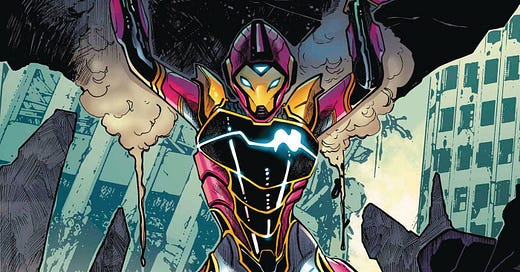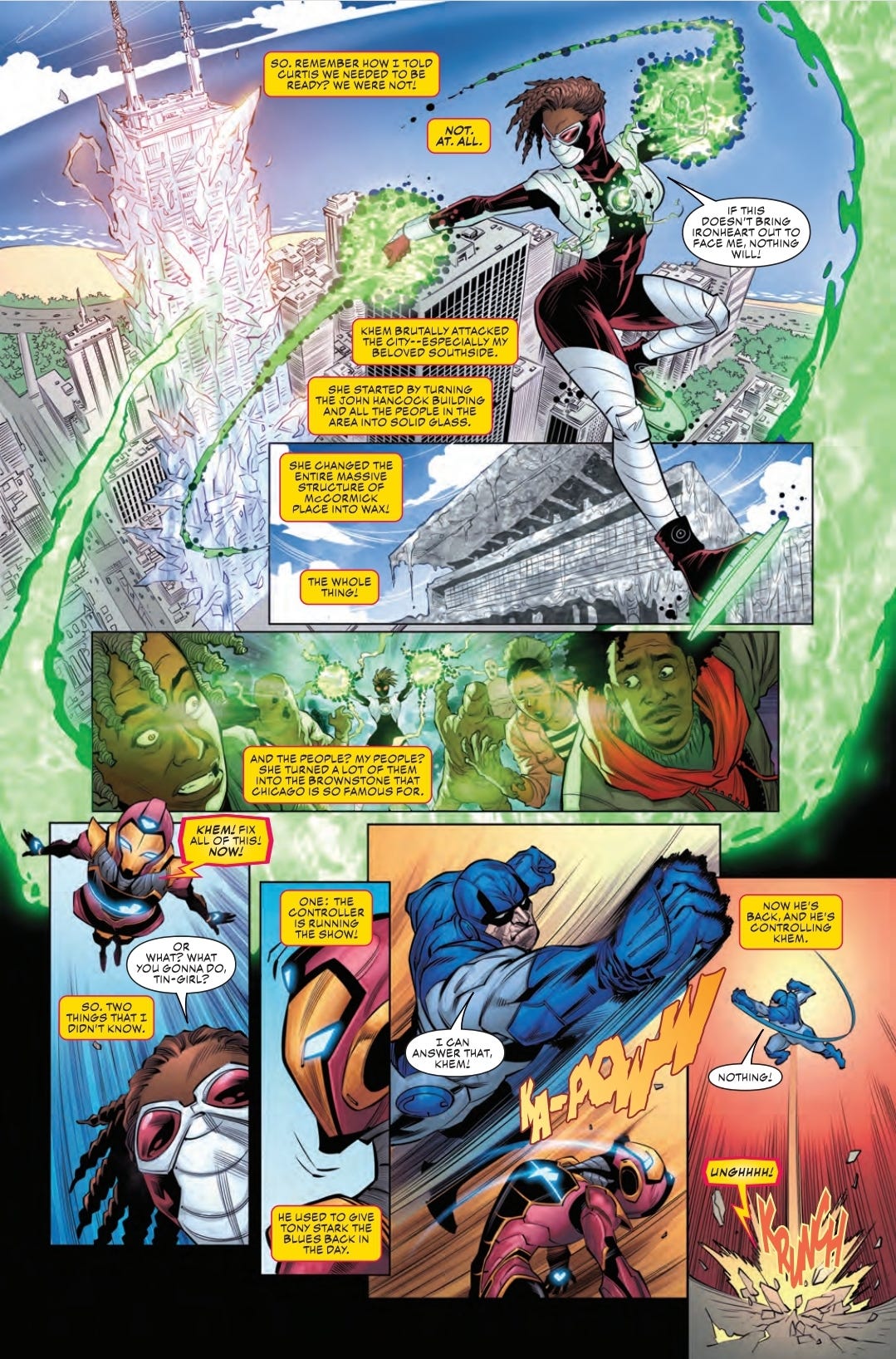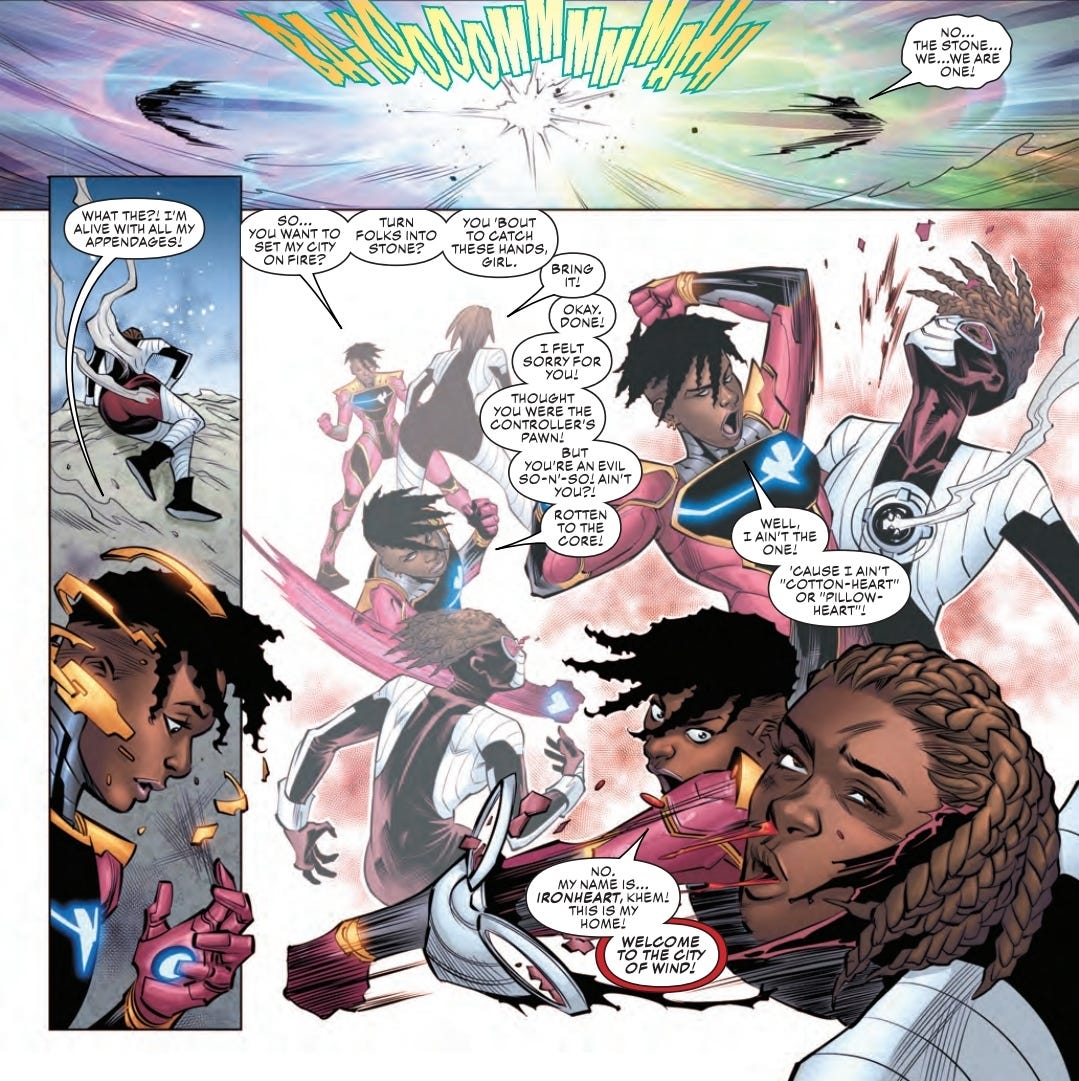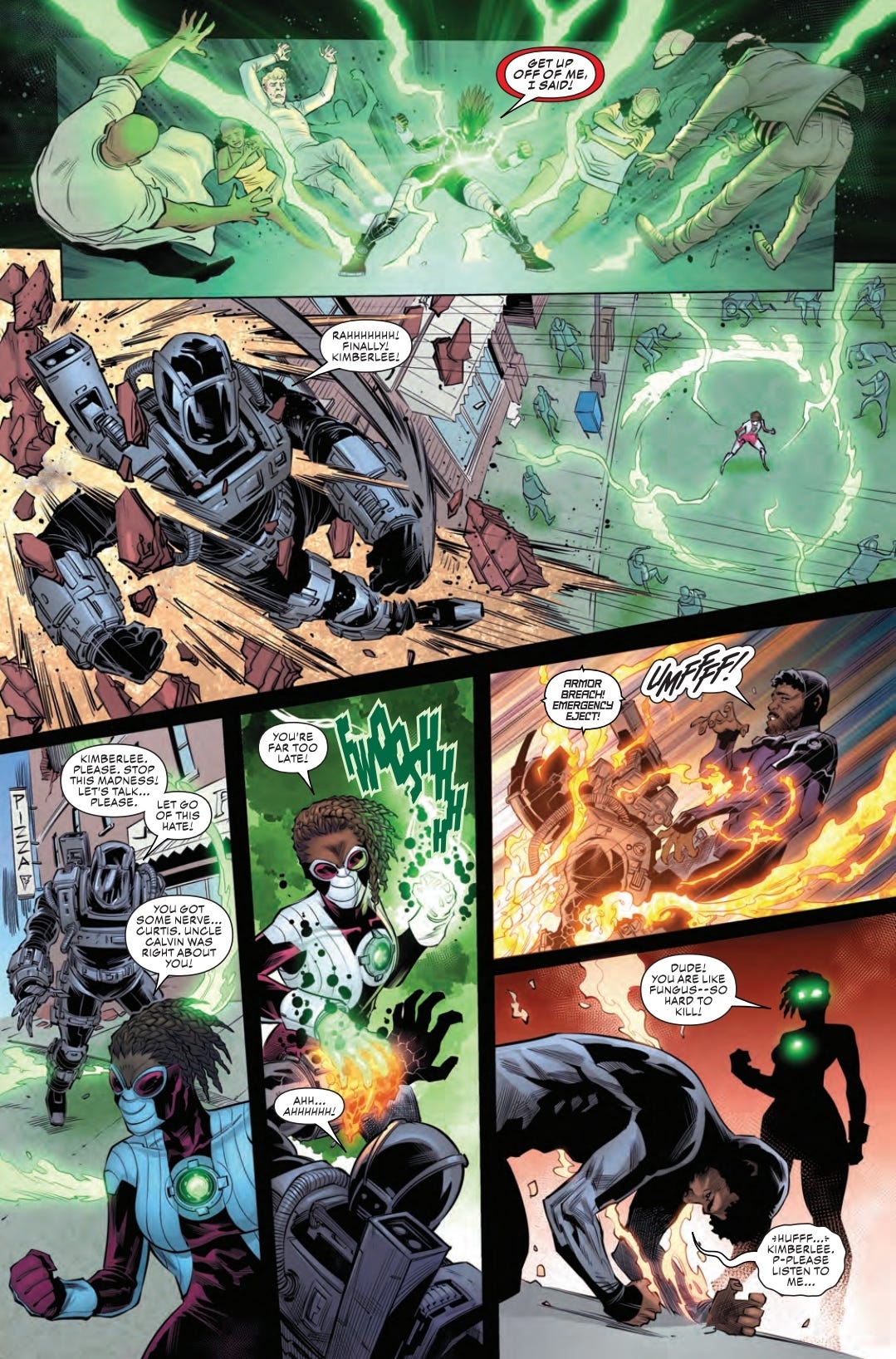This one-shot story centers on Riri Williams operating at the behest of John Jennings, a writer, illustrator, and professor. John picks up where he left off with Riri's 2023 Marvel's Voices entry, where she first encountered Khem. Entitled “Bad Chemistry,” this story starts in the heart of the action(all puns intended), where Riri quickly realizes she's not the only sistah with brains & beauty.
Khem flexes on Riri while showing she’s a formidable opponent who can match her in wit and ability, making for an interesting “heart-to-heart.” John scripts a high-octane opener that shows right away that Riri has her hands full. Khem shows her penchant for being a kleptomaniac by stealing another mystic artifact, the “philosopher's stone.” A relic said to “transmute elements.” Jennings molds a visceral animus within Khem that’s self-evident in her need to exact revenge against her “estranged” father, Curtis Carr, who, unbeknownst to her, knew nothing of her existence previously. Right away, Jennings lets it be known that Khem is relentless in quenching her thirst for payback.
As the story unfolds, Riri seeks out Curtis Carr to gather further details on Khem after realizing she’s Curtis’s daughter (which she discovered in Marvel’s Voices, 2023). Riri unabashedly pops up, telling Curtis, “I need the scoop on your baby mama,” a line that feels irreverent considering Riri has limited information to relegate Khem’s mom to the status of “baby mama.” In contrast, Riri stating, “Spill the tea on Kim’s mom,” would’ve been less cheeky. Aside from the remark, Jennings does well by meticulously threading the chronological events that led to Khem’s birth and Curtis’s absences. The art portrays the events in a way that poignantly walks the reader down memory lane.
Jennings makes it clear that Curtis is impaled by guilt. Skeletons, whom he thought were buried, have returned like the walking dead. The past is haunting Curtis. His daughter is filled with rage implanted in the soil of her mind by Curtis’s brother, a maniacal sadist. One of the issues within this story is there isn’t a clear and definitive baseline for Khem’s new powers after consuming the elixir devised by Basil. Much of the narrative suggests that she’ll be “unstoppable,” and considering Riri had a difficult time with Khem in the story’s intro, it is expected that Khem would be a tall order after her new powers.
Khem flawlessly demonstrates her new power upgrades by changing the elemental makeup of buildings and people around her in an attack to draw Riri out to fight. It’s clear that Khem “is a problem,” summarily combating away Ironheart’s attacks and showing control. In a surprising turn of events, Curtis and Basil join the fight. Basil reveals that Khem is the mastermind controlling the ploys. This was an interesting plot twist by Jennings. Khem’s prowess over environmental elements was on full display as she turned the people of Chicago against Ironheart.
This is where things get tricky. For instance, Khem could turn an entire building into glass and people into stone, yet this power wasn't used on Ironheart. Khem could set Curtis’s suit a blaze with one touch, and he had to eject himself out of it. It would naturally follow that she could do the same with Riri, yet instead, she did not try to employ the same gesture. The power scaling was sometimes ambiguous, as Riri swiftly disabled Khem by destroying her “slave disc,” which felt like an easy victory.
This led to Riri overloading her powers by firmly hugging her until her source stone overloaded, creating an anticlimactic defeat to Khem. Which felt abrupt given how powerful Khem was made to be with her new powers.
Another element added to Riri was an everpresent AAVE dialogue, which added good cultural anchoring for her as a young Black woman in Chicago. However, at times, the use of AAVE felt clunky or misplaced given the level of action taking place in a given scene, such that the AAVE didn’t read as natural in certain dialogue exchanges. Additionally, personal preference, but the term “slave wave” felt gauche given the fact this section of Chicago is predominantly Black. A more creative name could’ve been used; however, it is a minor detail in the story's overall quality.
Jennings provided a more than serviceable story with good characterization, action, and storytelling that brought you into the one-shot with a clear understanding of the plot from the beginning, middle, and end. However, one additional element could've been incorporated to give a less anticlimactic end, such as allowing Riri to lose because “character” is built in defeat, not victory.
Allowing Riri to lose creates relevance for Curtis because his presence felt futile, as he did nothing to elevate or help in the last battle scene. Letting him be the hero by stopping Khem would've been a more “bleeding heart” moment. He stops his daughter by sacrificing himself and showing he loves her in the face of her hate. This gives a poignancy to their complicated relationship while making better use of Curtis in the final act. This way, Khem is forced to grapple with emotional dissonance, second-guessing her dad's apathy for her and her hate for him.
Ultimately, Jennings provided a solid and entertaining one-shot story. Yet, the aforementioned areas of critique left more to be desired, making the difference between a good versus great story.









